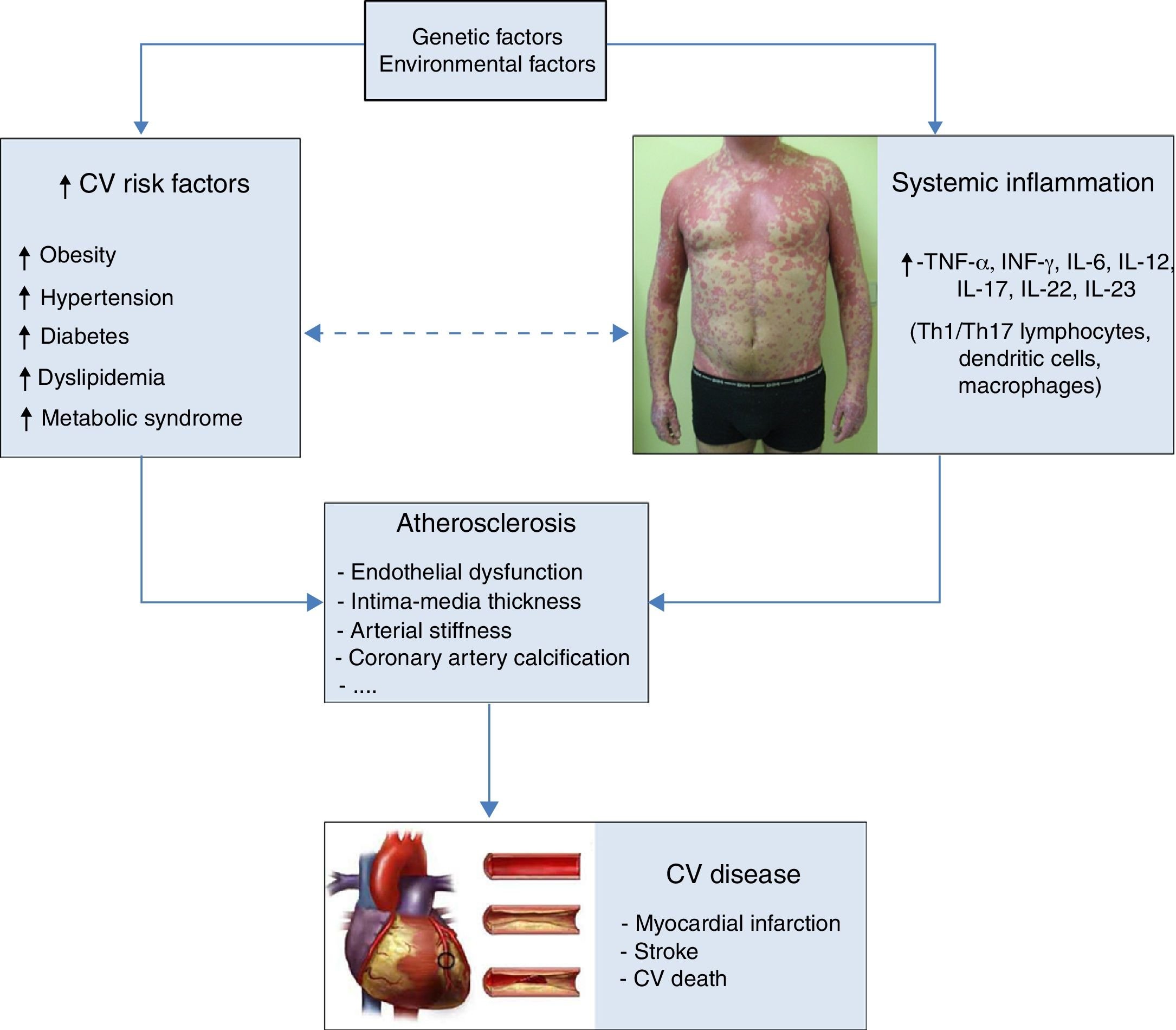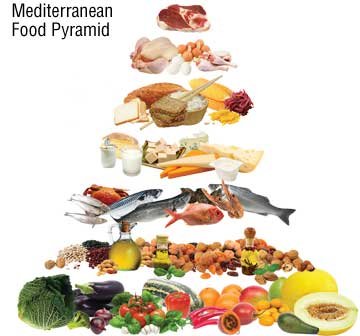Psoriasis risk factors
A review in the International Journal of Environmental Research & Public Health highlights nutrition as a risk factor for psoriasis, suggesting that overall diet, body weight and quality of nutrition are significant triggers of disease development and exacerbating factors, with potential to worsen the disease severity.
Psoriasis a chronic immune-mediated condition associated with significant inflammation. Metabolic risk (characterised by central weight, high blood sugar, blood pressure, triglycerides and cholesterol) is linked with increased severity of psoriasis and the current understanding is that inflammation may be the common link. Metabolic risk and obesity are both conditions of low-grade inflammation, which via immune mediated mechanisms ‘feed into’ psoriatic associated inflammation and worsen severity.
Psoriasis & Cardiovascular disease risk
Torres and Bettencort, 2014. The link between psoriasis and cardiovascular disease.
So what about the link between nutrition and psoriasis? Diet and nutrition have a considerable role in systemic inflammation. This review reports that compared to a standard western diet, a healthy diet such as the Mediterranean diet, is associated with a reduced risk of cardiovascular disease and metabolic diseases (type 2 diabetes, excess weight). There are also significant positive associations between adherence to the Mediterranean diet and reduced inflammation, which improves psoriasis and reduces metabolic and cardiovascular disease risk.
So, as a management tool for patients with psoriasis, the Mediterranean diet is useful for improving appearance as well as the inflammation which underlies the condition. It also reduces metabolic and cardiovascular disease risk which are known conditions associated with psoriasis and reduces medication reliance.
What does the Mediterranean diet look like in real food terms:
The real Mediterranean Diet - lots of fruit & vegetables
Eat cold-water fish (wild caught not farmed) such as mackerel, trout, herring and sardines 2 to 3 x a week – they are rich in omega 3 essential fatty acids and vitamin D.
Have 5 serves of vegetables and 2 fruit daily. Plant-based diets are associated with less inflammation and rich in phytochemicals that help reduce oxidative stress.
Have quality Australian olive oil as your main source of dietary fat. Good quality olive oil is rich in polyphenols, which reduce lipid oxidation when heated, meaning you can safely cook at higher temperatures.
Avoid alcohol - it is associated with increased severity of psoriasis.
Avoid gluten – there is a high prevalence of celiac disease among psoriatic patients.
Avoid regular consumption of foods that promote inflammation such as red meat. Spicy foods such as chili, caffeine and dark chocolate may be a trigger for some individuals.
While these recommendations are based in evidence, even while following the Mediterranean diet, for some people psoriasis can still be an ongoing struggle. Individual food triggers, stress, gut health and genetics also play a role in the incidence and severity. If you are struggling with this condition and need further assistance, call to make an initial appointment on 0400 223 949 to see how I can help you.
Barrea, L., Nappi, F., Di Somma, C., Savanelli, M.C., Falco, A., Balato, A., Balato, N. and Savastano, S., 2016. Environmental Risk Factors in Psoriasis: The Point of View of the Nutritionist. International Journal of Environmental Research and Public Health, 13(7), p.743.
Torres, T. and Bettencourt, N., 2014. Psoriasis: the visible killer. Revista Portuguesa de Cardiologia (English Edition), 33(2), pp.95-99.



